
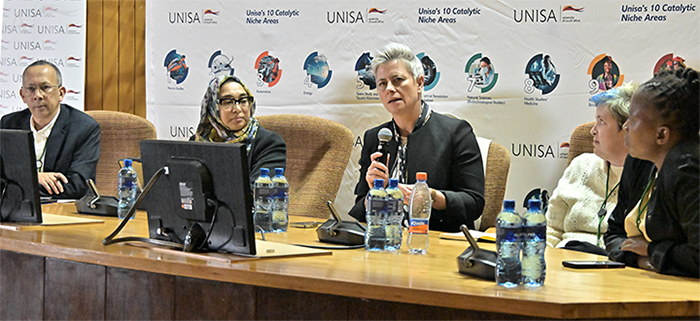
From left: Prof Ashley van Niekerk, Prof Naiema Taliep, Dr Nikki Allorto, Leonora Tima and Grace Baloyi
On day two of Unisa's Catalytic Niche Areas Research Symposium on 31 July 2025, health experts speaking on the theme Technological applications and innovations in injury prevention and safety promotion shared information on innovations that help address community health and safety concerns.
Chairing the session, Prof Ashley van Niekerk of Unisa’s Institute for Social and Health Sciences (ISHS) in the College of Human Sciences, and Director of the Violence, Injury and Social Asymmetries Research Unit of the South African Medical Research Council, said that physical injury is a significant health and social concern in South Africa. He added: "These injuries account for about nine to ten percent of the country’s mortality rate, which is about 55 000 deaths out of approximately 450 000 deaths reported annually".
He continued: "Beyond physical injury burdening the healthcare system, these injuries have psychosocial and economic burdens". Van Niekerk mentioned that, among others, there are the recently passed National Strategic Plan on Gender-Based Violence and Femicide, and the Firearms Control Act, which aim to minimise the number of violent incidents and risks in the country. He also highlighted that several programmes are being implemented to support injury or violence survivors in the country.
Prof Naiema Taliep of the ISHS focused on the Community Safety and Peace Index Study, funded by the National Research Foundation, stating that the United Nations’ Sustainable Development Goals highlight that peace and safety are paramount in the global agenda. Taliep, however, further explained that the promotion of safety and peace in communities can be affected by access to reliable and contextually relevant tools to measure progress on appropriate interventions. She added: "In the South African context, a country shaped by historical trauma, spatial injustice and structural violence, the measurement tools must also be sensitive to the local means of peace, safety and community wellbeing".
Additionally, Taliep spoke about the Injury Surveillance Application App that Unisa is developing to combat safety and peace risks in communities, explaining how it enables the immediate reporting of such incidents. "The app will enable real-time grassroot communities to identify, report and monitor safety threats in their respective spaces; therefore, it is important to be enthusiastic about digitisation," she explained.
Dr Nikki Allorto, burn surgeon and President of the South African Burns Society, highlighted the Vula Medical Referral App, which medical professionals in the country can use free of charge. It enables them to refer patients or communicate directly with medical specialists. "The app bridges the communication gap between patients, especially in marginalised communities such as rural settings, to access specialists more effectively." Allorto explained: "It also enables the specialists to upskill health professionals that refer patients and to manage the resources effectively, further helping specialists to manage patients cost-effectively".
Allorto further said that culturally and in academic settings, one of the barriers to the adoption of such apps is that health care professionals still prefer to do things the traditional way. She encouraged institutions of higher learning and health practitioners to collaborate and embrace technology, such as the Vula App, to improve health services.
Leonora Tima, Director of Gender Rights in Tech, spoke on an app that prevents and protects communities against gender-based violence (GBV), a major and complex issue in South Africa and beyond. "The complexity also speaks to reporting this act and navigating the criminal justice system thereof," she said. "Through various processes, including community engagement," she continued, "we developed an app for communities to report GBV incidences technologically." According to Tima, the app also enables violence survivors to create evidence of the incident in order to improve the conviction rate of perpetrators through the criminal justice system.
Tima stated: "We underestimate the issue of digital divide and technological illiteracy in South Africa, which must be addressed urgently". Further, she shared that it is important to build societal trust in such an app and to ensure that society understands the apps are accessible and inclusive. "We must also address the technological skills deficit among this country’s youth."
Grace Baloyi, Senior Programme Manager at the SAMRC responsible for the Global Health Innovation Accelerator, among others, spoke on the funding of health-related innovations, and the organisation’s national efforts and opportunities to support innovation work in the health field. She also shared information about an app being piloted in the Western Cape that detects gunshots. She elaborated: "The app triangulates and points to the area of the gunshot and the type of gun used. The idea is to eventually link this app to systems of the South African Police Service". Baloyi urged scholars and various organisations not to work in isolation, but to collaborate to enhance surveillance to combat the country's health and safety concerns.
Baloyi also encouraged up-to-date technological regulation and continuously upskilling the people responsible for these regulations. She concluded: "We need to create more willingness and awareness on funding opportunities for innovation, as well as access to the right networks and collaborations".
* By Nancy Legodi, Acting Senior Journalist, Department of Institutional Advancement
** Photography by Shooheima Champion, Multimedia Centre
Publish date: 2025-08-05 00:00:00.0
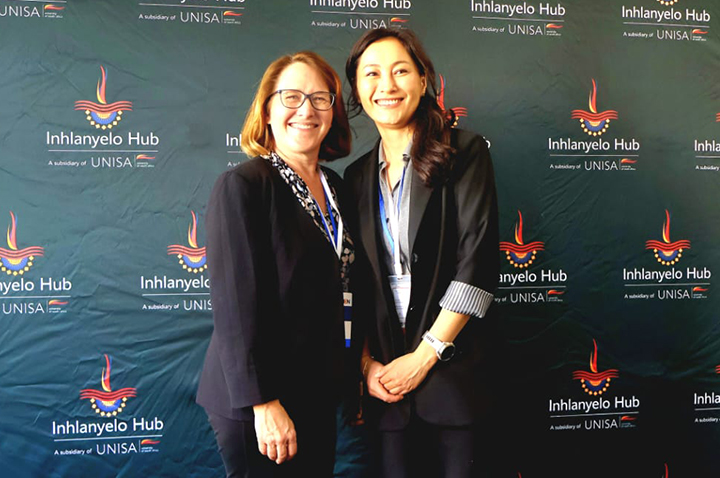 Unisa roundtable focuses on empowering SA women to lead in innovation
Unisa roundtable focuses on empowering SA women to lead in innovation
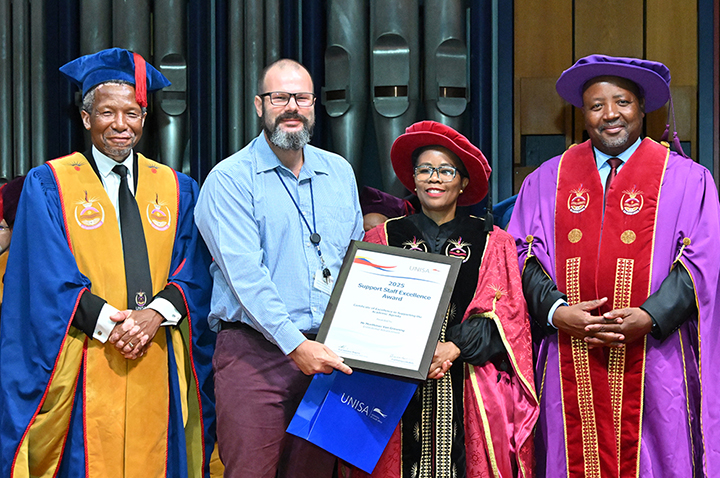 Unisan recognised for web excellence
Unisan recognised for web excellence
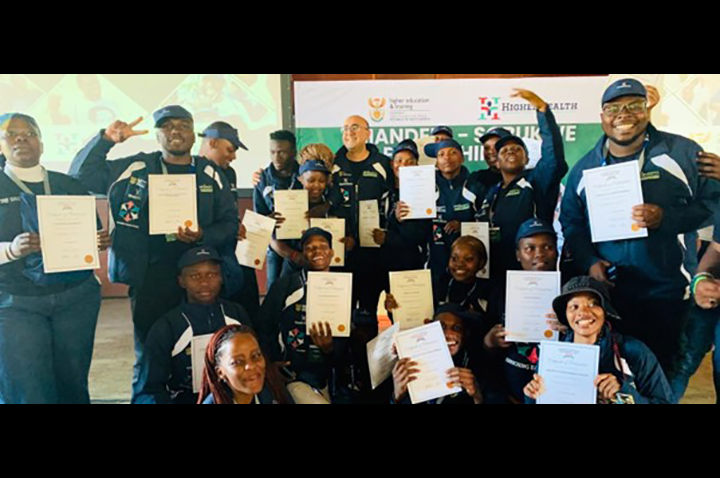 Office of the Dean of Students participates in leadership camp
Office of the Dean of Students participates in leadership camp
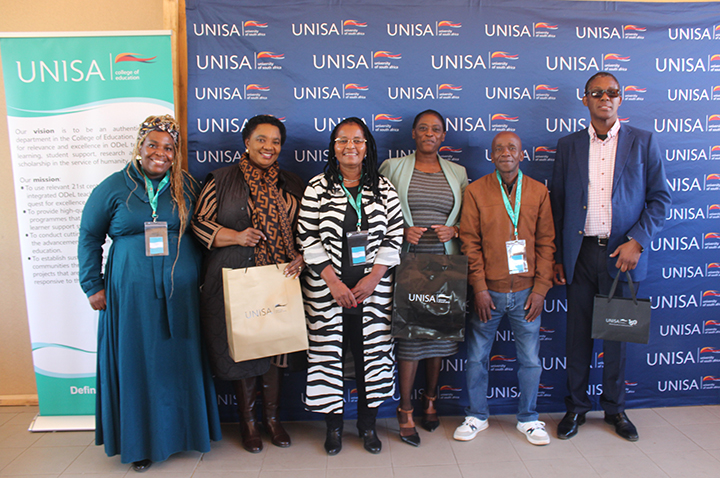 Unisa project fosters digital and pedagogical innovation in Limpopo schools
Unisa project fosters digital and pedagogical innovation in Limpopo schools
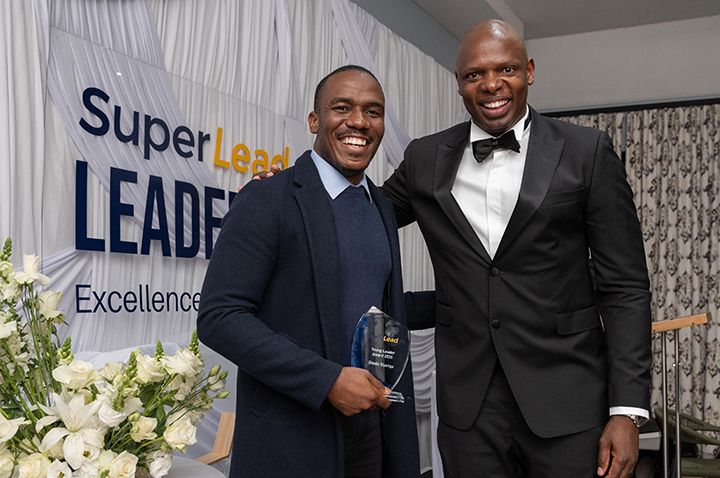 Unisa student wins prestigious national leadership award
Unisa student wins prestigious national leadership award